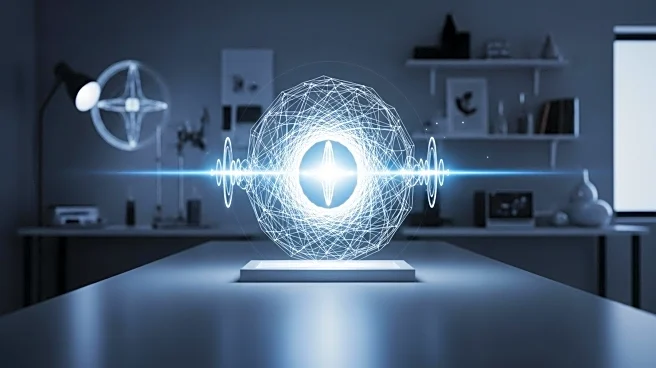What's Happening?
The 2025 Nobel Prize in Physics has been awarded to John Clarke, Michel Devoret, and John Martinis for their pioneering work on macroscopic quantum tunneling. Their research demonstrated that quantum tunneling, previously thought to be limited to microscopic scales, can occur in macroscopic systems. By leveraging superconductivity and creating a Josephson junction, they developed an electronic circuit that behaves as a single quantum system. This breakthrough has significant implications for the development of quantum computers and other advanced technologies.
Why It's Important?
This discovery has profound implications for the field of quantum computing, as it provides a foundation for creating more efficient and powerful quantum systems. The ability to observe and utilize quantum tunneling on a macroscopic scale opens new possibilities for technological advancements in computing, imaging, and precision measurement. The work of Clarke, Devoret, and Martinis has laid the groundwork for the development of superconducting qubits, which are essential for building high-performance quantum computers. This could lead to significant advancements in various scientific and industrial applications.
Beyond the Headlines
The recognition of macroscopic quantum tunneling highlights the potential for quantum mechanics to transform our understanding of the physical world. This breakthrough challenges traditional notions of scale and demonstrates the interconnectedness of quantum and classical physics. The implications extend beyond technology, prompting discussions about the fundamental nature of reality and the potential for new scientific paradigms. As quantum technologies continue to evolve, they may lead to ethical and philosophical considerations regarding their impact on society.









